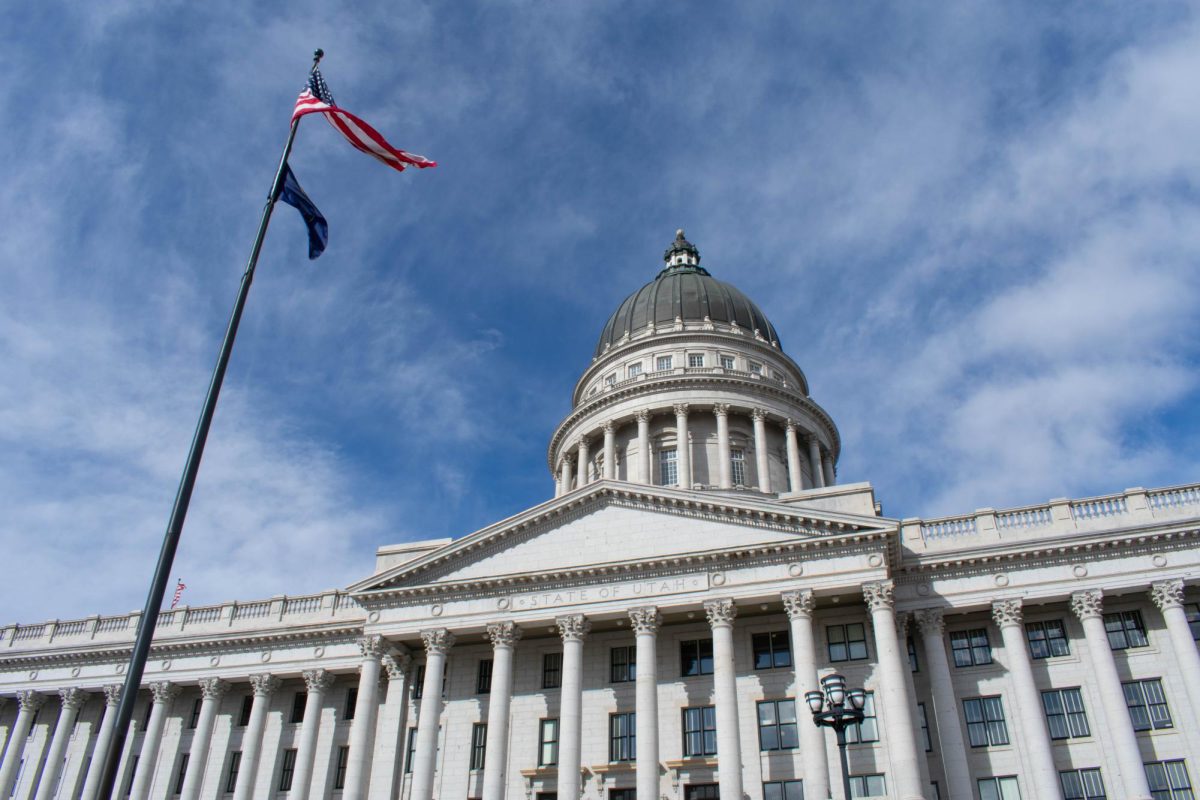On Tuesday, Gov. Spencer Cox signed two controversial bills into law — a bill impacting which restrooms transgender people can use and an anti-DEI bill that limits those programs in education.
H.B. 257 bans transgender people from using restrooms, locker rooms and dressing rooms that differ from their sex at birth in government-owned and operated buildings. If transgender people want to use the facility that aligns with their gender identity, they will need to undergo a full sex reassignment surgery, and legally change their gender marker on their birth certificate.
Rep. Kera Birkeland (R-Morgan) sponsored the bill and said it’s intended to protect privacy in schools and tax-funded buildings throughout the state. Private buildings will not be held to this policy.
She also said the bill was an “anti-bullying” bill.
“This bill ensures … that we have privacy, and that we are not allowing or perpetuating bullying within our schools,” she said in the Jan. 22 Senate floor hearing.
However, some public commentators felt differently and said the bill would instill fear in transgender Utahns.
Bianca Cline, a transgender woman and mother of three, is one of them.
“Being trans is a really difficult thing for most people,” Cline said during the public comment period of the hearing. “This bill would make life even harder than it already is. We’re a vulnerable group. We get attacked or killed or sexually assaulted, not the other way around. This bill will make it very difficult for trans people to exist in public.”
In a statement released by the Governor’s Office, Cox said, “We want public facilities that are safe and accommodating for everyone and this bill increases privacy protections for all.”
Deseret News reported the bill is expected to face litigation, however, the passed bill includes a provision that would compensate government entities if they face lawsuits due to the law, and the state would cover court costs.
Anti-DEI Bill
H.B. 261 faced similar opposition. Named the Equal Opportunities Initiative, the bill ends diversity, equity and diversity programs in state schools and state-funded organizations.
The bill’s sponsor, Rep. Katy Hall (R-South Ogden) said the bill removes barriers within education systems and does not promote discrimination — rather DEI creates discrimination.
While Hall said there is “not much data” to determine the outcomes, Geoffrey Landward, interim commissioner of Utah Systems of Higher Education, views this as an opportunity to address the “gaps” USHE is already aware of in Utah schools. He asked the legislature for patience as they navigated the bill.
Criticism from the public regarding H.B. 261 included students of color feeling a loss of identity, as well as taking away essential resources needed for educational success.
Additionally, the bill prohibits state employers from including diversity statements in job postings or requiring yearly DEI trainings.
Cox issued a statement about the signing of the two bills.
“We’ve been concerned about some DEI programs and policies, particularly with hiring practices, and this bill offers a balanced solution,” it read. “I’m grateful to the Legislature for not following the lead of other states that simply eliminated DEI funding with no alternative path for students who may be struggling. Instead, this funding will be repurposed to help all Utah students succeed regardless of their background.”




